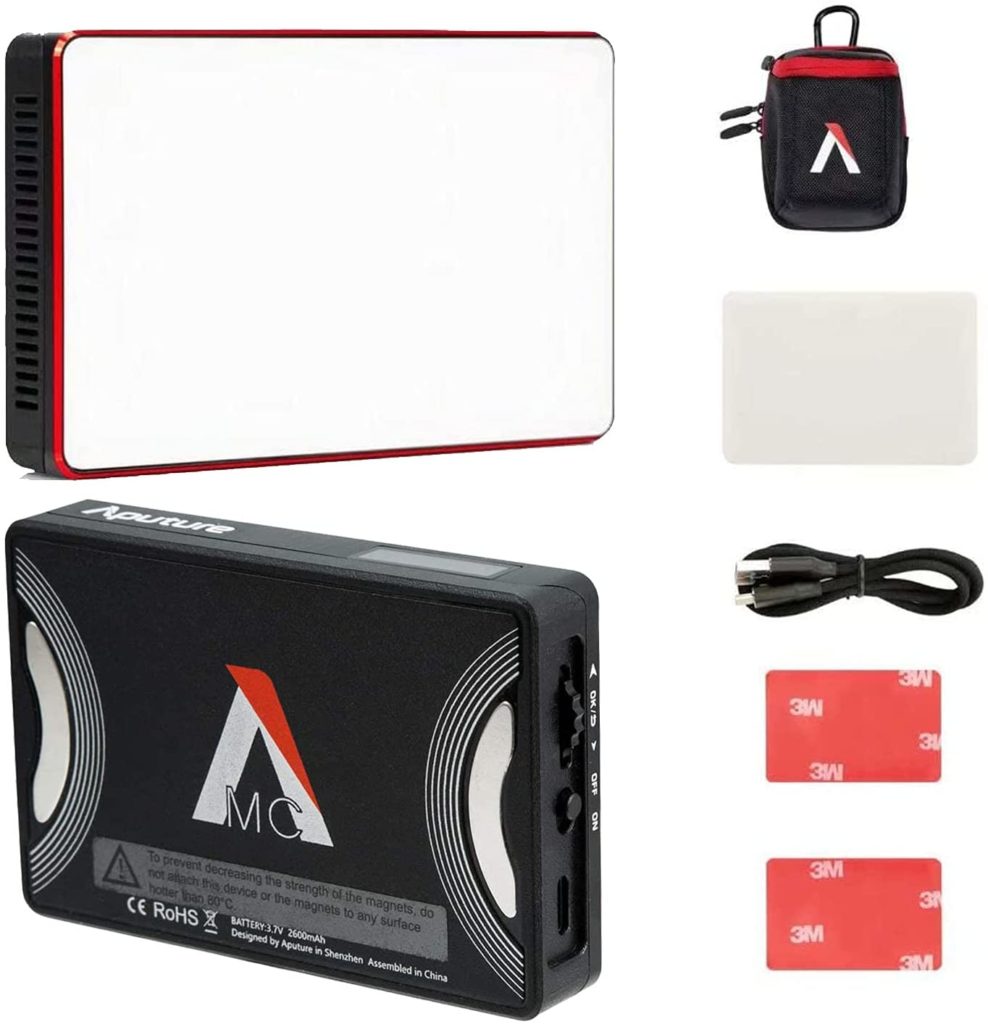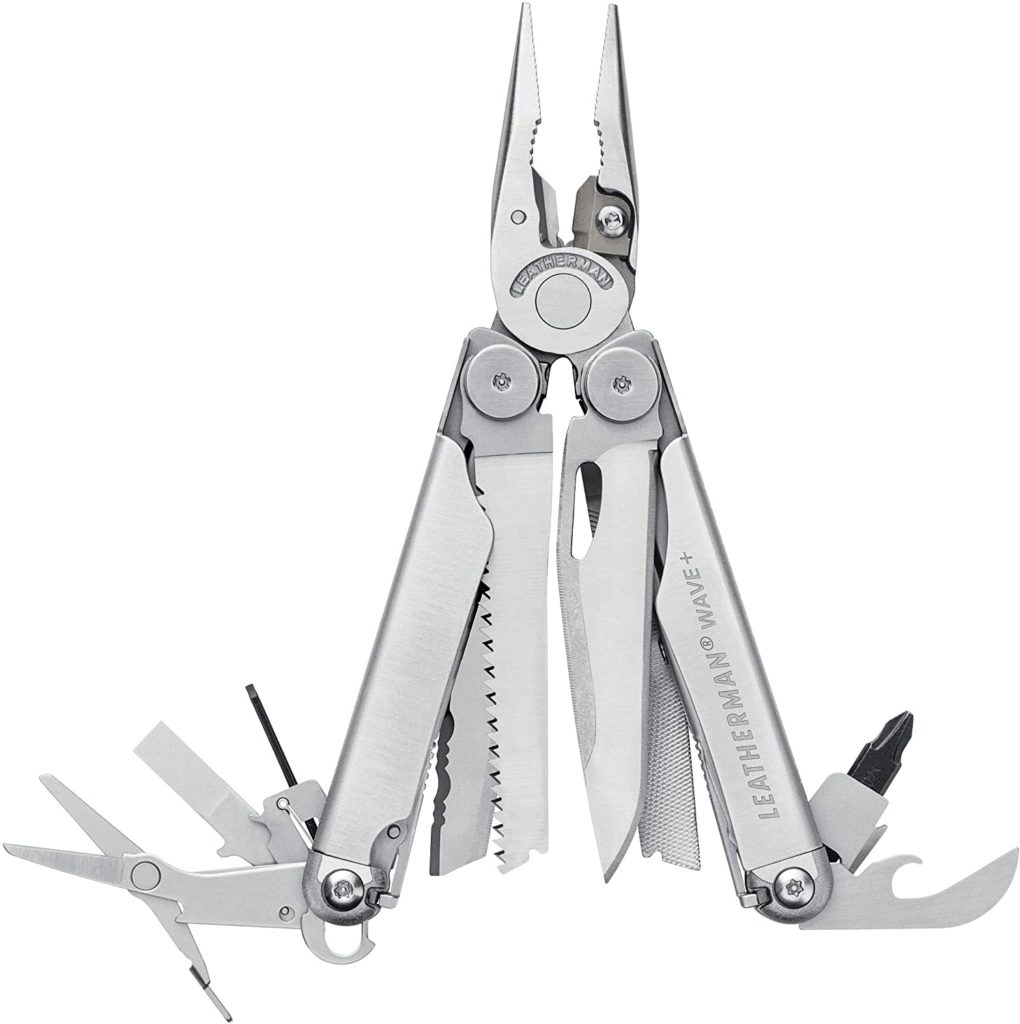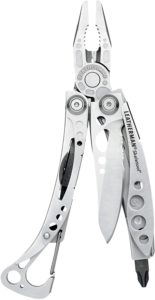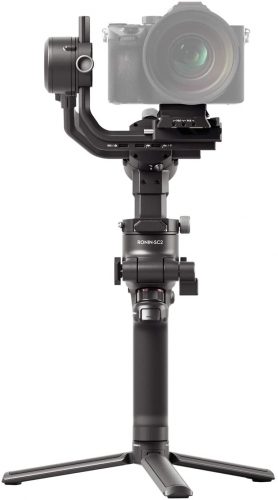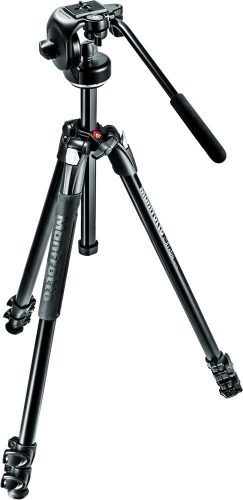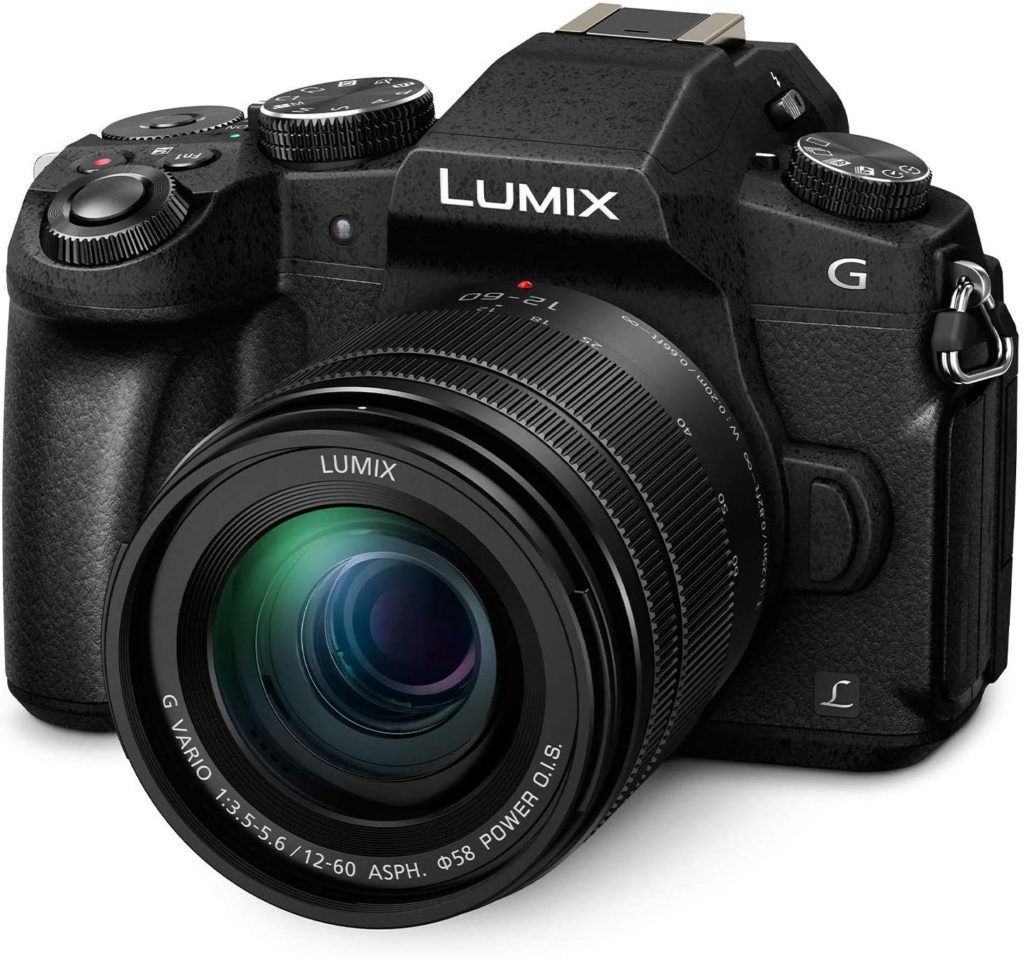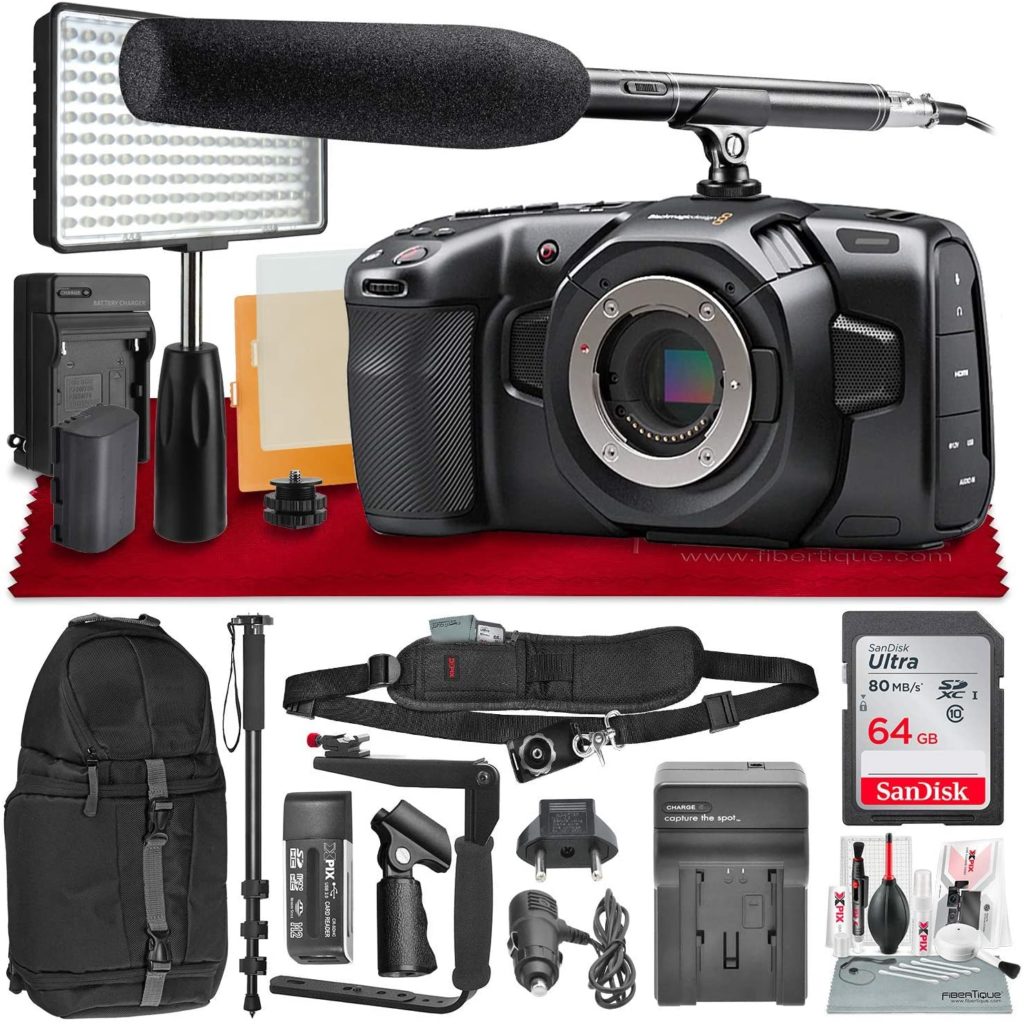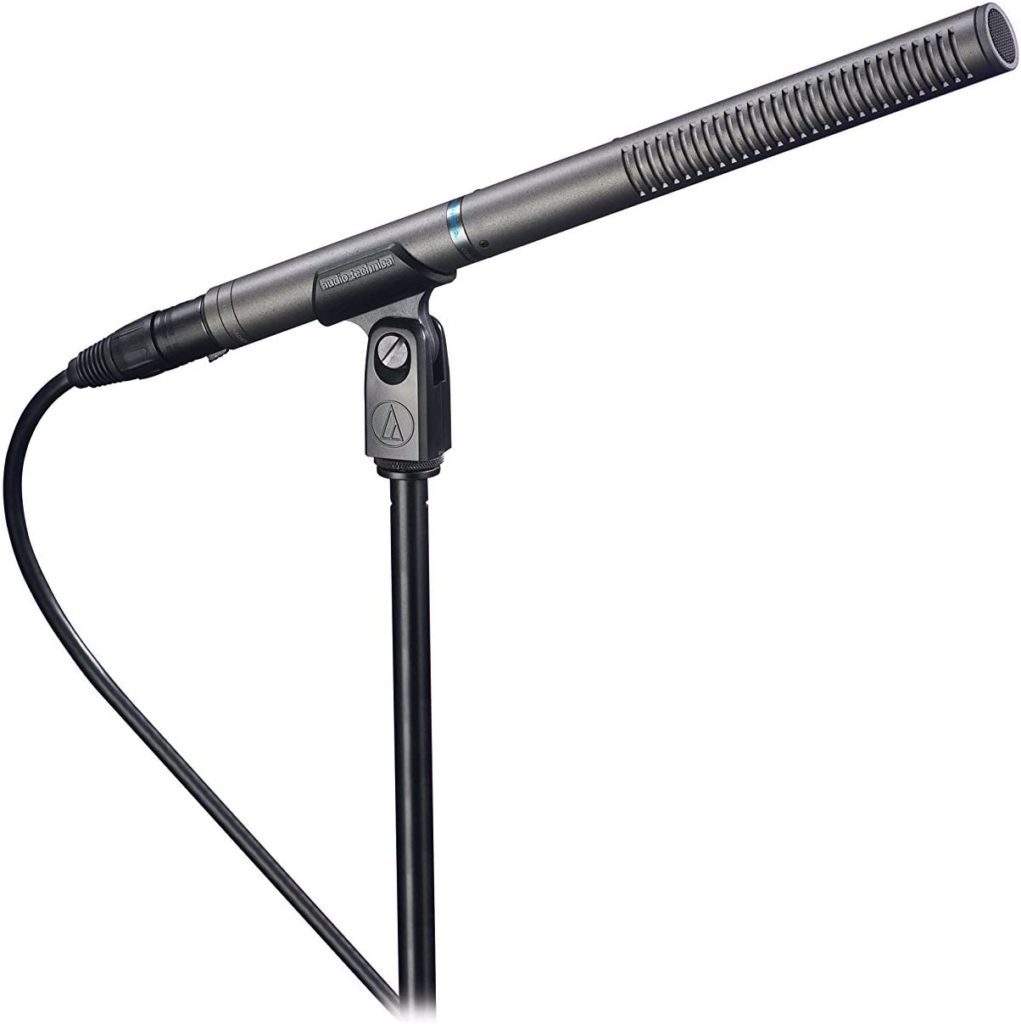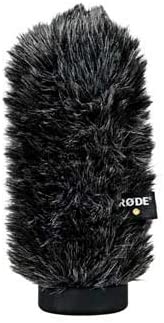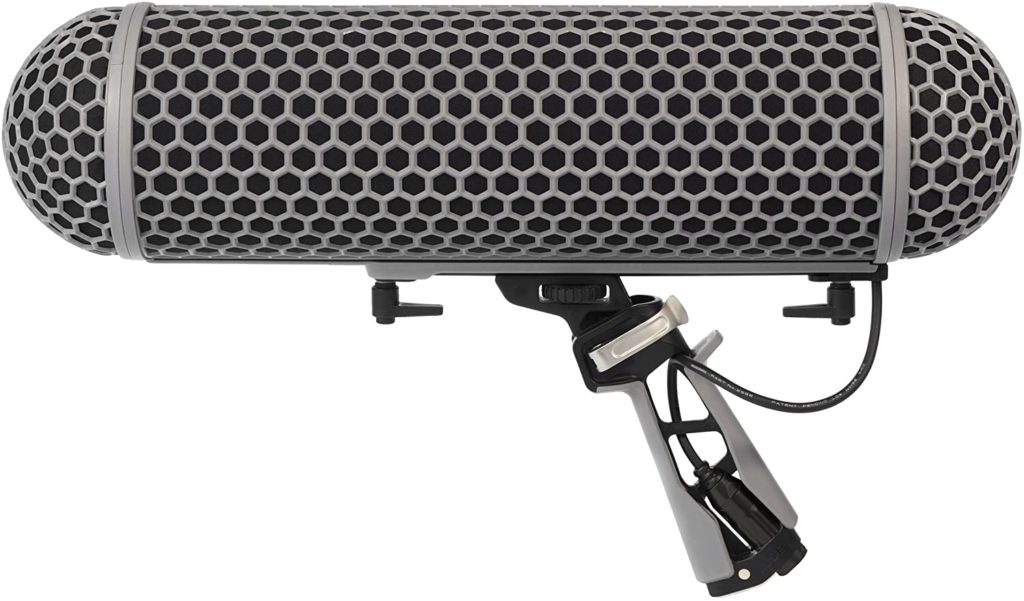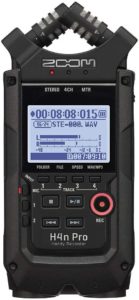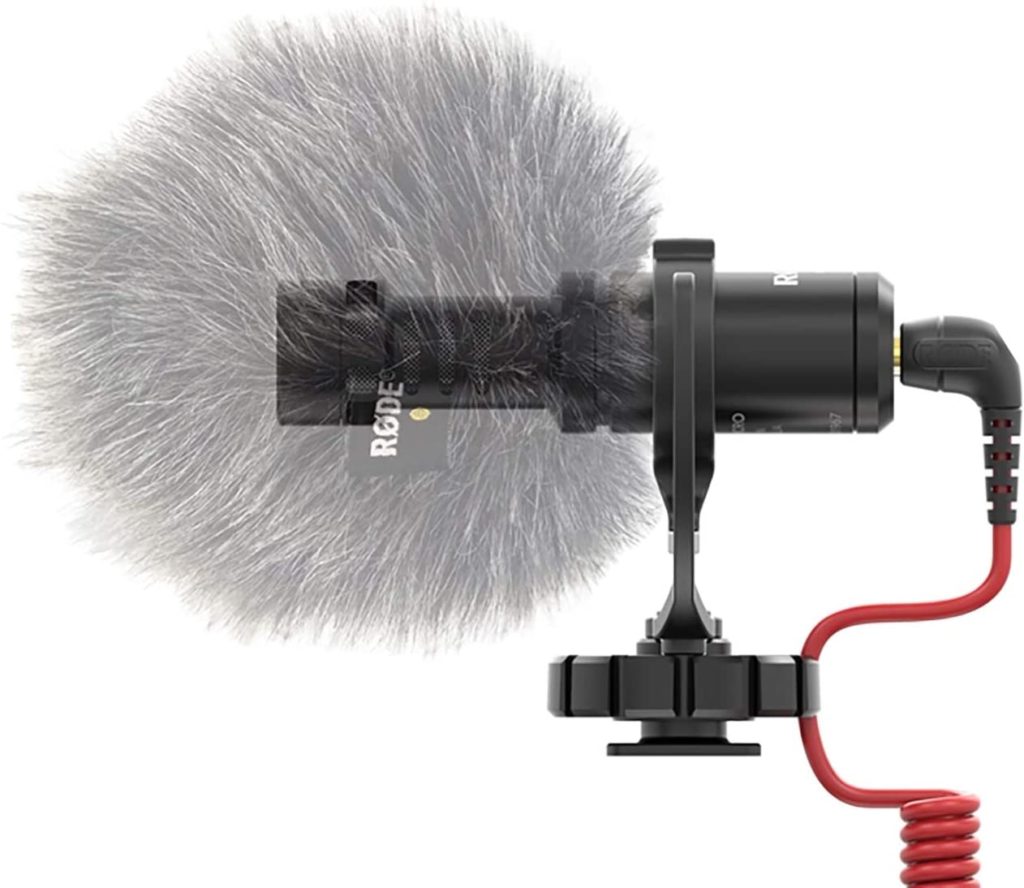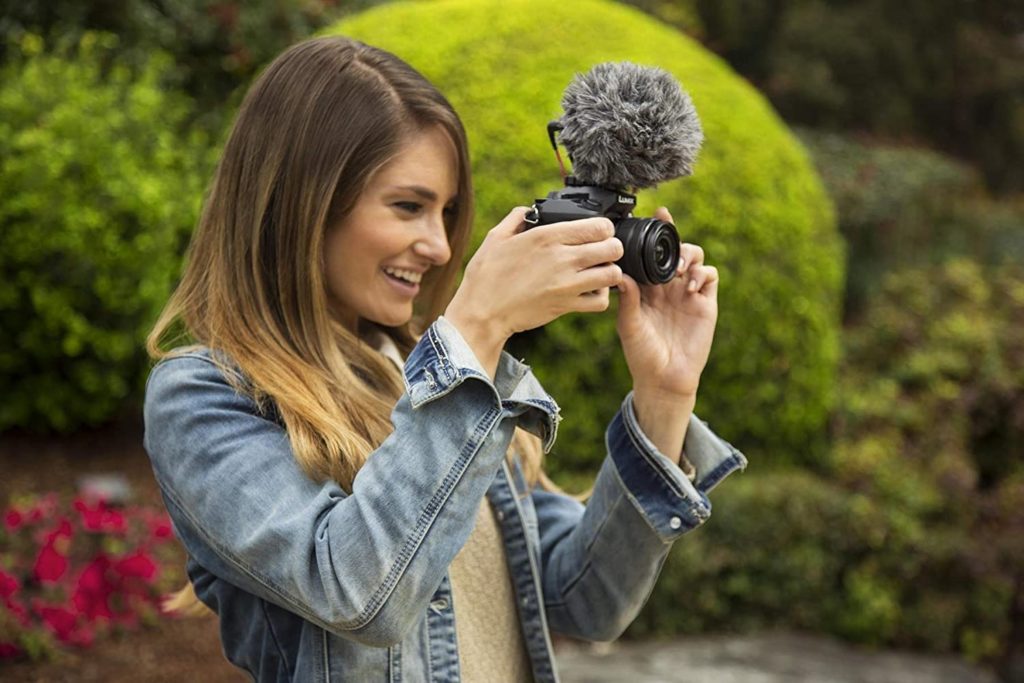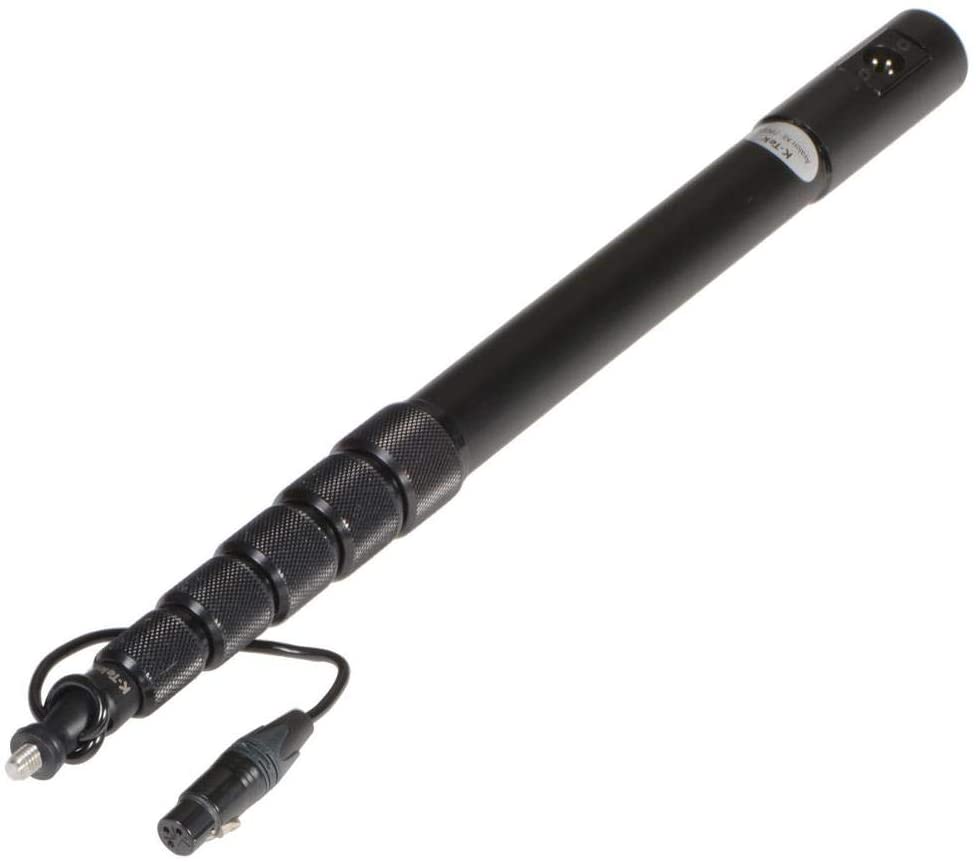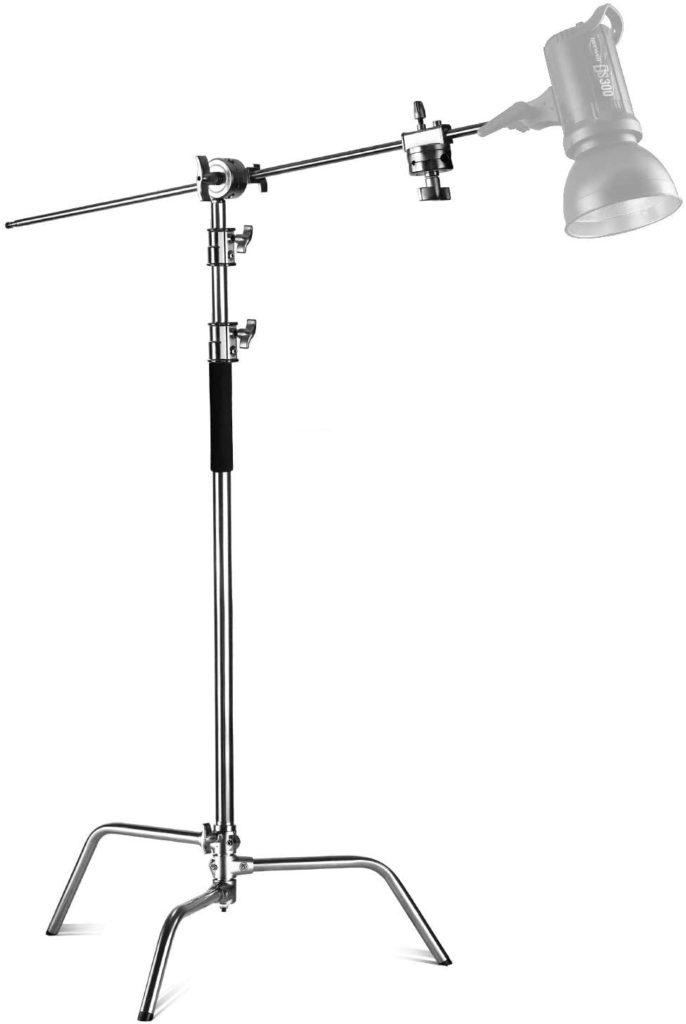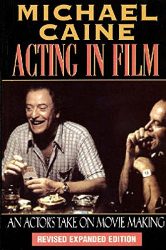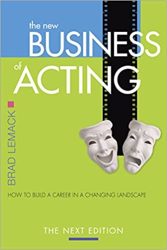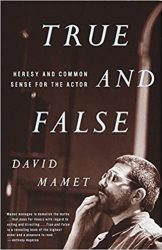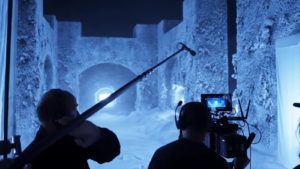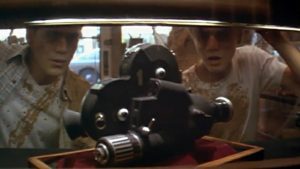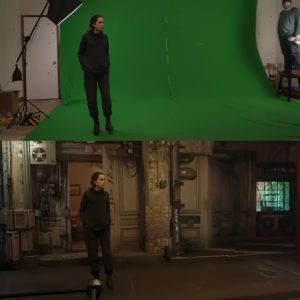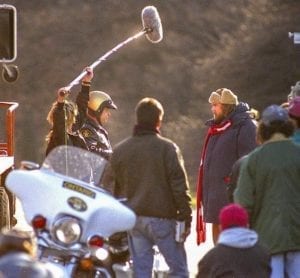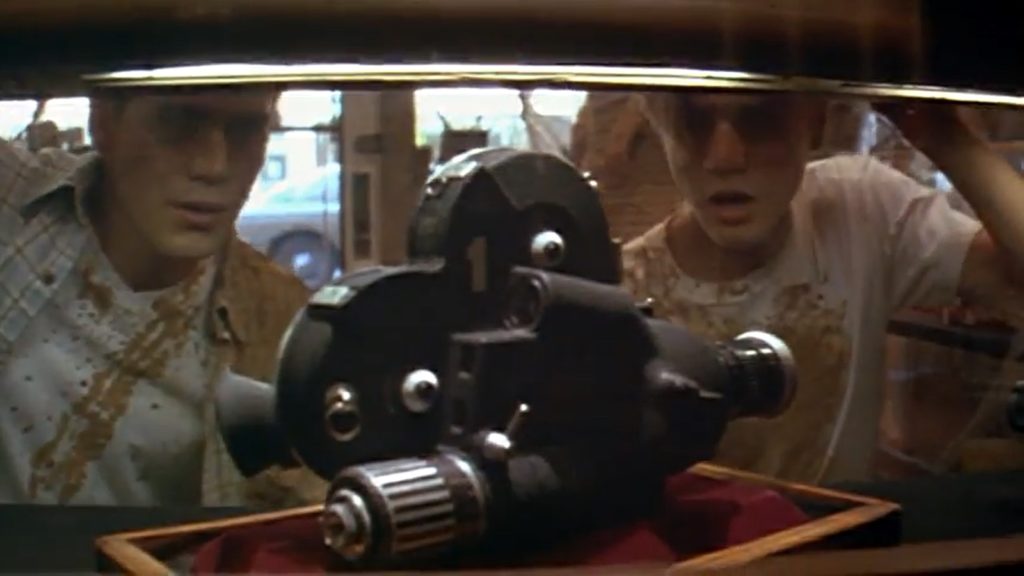
In the previous article about gifts for filmmakers, we focused on the gifts under about $50. However, if you can afford more, here are some other cool and helpful gifts that you can give your dear filmmaker.
You can give a filmmaker a gift such as a portable light, Leatherman multitool, gimbal, camera or lens, editing software, fluid head tripod, sound equipment, MasterClass subscription, boom pole, C-stand, or something completely different that they want that you can find out about if you ask them.
Below we talk about why these gifts are so useful and appreciated and also provide some links for where you can buy them. As an Amazon Associate I earn from qualifying purchases. The ideas below were made based on consultation with multiple filmmakers.
1. Pocket RGB LED Lights (e.g. $95)
Battery-powered pocket lights are super helpful for filmmakers because they are very portable (you don’t need to worry about cables). Furthermore, lights that you can change the colour of are helpful because that can affect the mood of the scene. If the light has built-in effects, such as cop car lights, flickering lights (like in a horror movie), and others, those can also help create various scenes, as shown in the video below.
The light shown in the video above is the Aputure MC light (also shown in the images below). Aputure is generally known to be a pretty good brand for such lights.
2. Leatherman multitool (e.g. $65 or $100)
Leatherman multitools are very useful in setting up and adjusting a variety of filmmaking equipment (e.g. tightening or looosening parts on your camera rig) and can keep you from having to carry as many tools with you or having to pause what you’re doing to go get a certain tool. Additionally, if people see that you have a Leatherman, they know you mean business.
There are different kinds of Leatherman multitools. The Leatherman Wave Plus is popular because it is quite universal; however, some prefer the Leatherman Skeletool because, although it has fewer tools, it is lighter. Specifically, the Skeletool has approximately 40% less weight and a 25% smaller thickness, making it more portable. Either one would make a great gift.
3. Gimbal (e.g. $500)
A gimbal stabilizes the camera so that you don’t get shaky footgate. You can see in the video below how much of a difference a gimbal can make.
Also, as shown in the videos below, you can use a gimbal to achieve various kinds of cinematic effects, even replicating a drone or jib/crane when combining the gimbal with a monopod.
4. Camera lens, such as 50mm lens (e.g. $50-$2000)
Why do filmmakers need different lenses for different shots? It’s easiest to show with an example. In the video below, you can see how different lenses affect appearance and, even though the 24 mm lens might result in too much facial distortion (1:39), that kind of lens could be very helpful when you want to fit something as big as a building into the frame (3:12). In other words, filmmakers need different lenses for different shots because different lenses affect how close/far you can film, how much of the background fits into the shot, and what the distortion is like. Having multiple lenses helps filmmakers shoot a greater variety of scenes.
If you want to get your filmmaker a lens, check to see what kind of camera they have to make sure you get a lens that is compatible with their camera, and also check to see if they already have that kind of lens.
There are variety of lenses to choose from, with 35mm and 50mm being among the more popular ones. Many filmmakers say they really enjoy using the 50mm lens. There are also zoom lenses that allow you to switch between focal lengths, making them more universal. Because the lens needs to be specific to the camera that your filmmaker has, we’re not going to recommend any particular lens here. Also, if you have the choice between getting a new cheaper lens and getting a used but higher quality lens, get the used one. Remember to make sure that the lens is compatible with your filmmaker’s camera.
5. Pro versions of editing software (e.g. $300)
Editing a film is a long task even if you don’t have fancy visual effects, because you might still do things like make the sound from the next clip start while the previous clip is still playing to get smoother transitions between clips, adjust colours to get the mood just right, cut back and forth between the speaker and listener in a dialogue, and so on. There is free editing software out there, but the higher quality pro versions can help speed up the editing process, make the process more enjoyable, and, yes, also give new possible effects to play around with. The video below gives examples of some effects that can be achieved using Adobe Premiere Pro:
There is a variety of editing software out there – how do you know which one to gift? First of all, do they already have an awesome editing software? If so, maybe gift them something else, but if they don’t have one, read on:
- Final Cut Pro is nice but it’s only for Mac users.
- Adobe Premiere Pro has great functionality but it has the disadvantage that you have to pay for it on a subscription basis – you can’t just buy it once.
- DaVinci Resolve Studio is probably best as a one-time gift because it’s like Adobe Premiere Pro but it’s a one-time purchase for lifetime access with free updates forever. Furthermore, it’s also the world’s best software for colour grading (i.e. adjusting video colours).
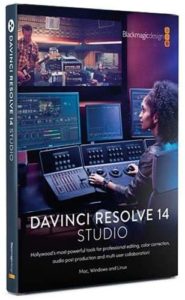
Note: know that you get a free copy of DaVinci Resolve Studio if you buy a Blackmagic Pocket Cinema Camera (because the same company makes both) so if you’ll be buying that camera, don’t worry about buying the software.
6. Fluid Head Tripod (e.g. $220)
Unlike in photography, in filmmaking tripods aren’t just used statically – the camera has to be moved around left and right (“panning”) or up and down (“tilting”) without jerky movements. As shown in the video below, a regular photography tripod doesn’t work for that, while a fluid head tripod allows for smooth movement of the camera.
If you want to give a fluid head tripod as a gift, Sachtler and Manfrotto are brands that are well known to produce good fluid head tripods. Below is an example of one of the more affordable fluid head tripod models by Manfrotto. It is good to check what kind of tripod your filmmaker currently uses so you can make sure you get them one that is better.
7. Camera (e.g. $700)
You may have heard people say that there’s no need for fancy cameras because smartphones are so advanced nowadays. If you’re not a filmmaker, you might not think much of the differences in focus and light exposure, but here’s a difference that is easy to understand: storage. High resolution videos take up a lot of space so, when filming with a smartphone, filmmakers might run into the problem of running out of storage. In contrast, when filming with a camera instead of a smartphone, you have a lot of storage and can switch out memory cards if you need more.
If you want to gift your filmmaker a camera, first see what kind of camera they already have so you can be sure to get them something better. An example of one of the less expensive DSLR cameras that works well for filming is the Panasonic Lumix G85 camera shown below.
If you can afford it, a Blackmagic Pocket Cinema Camera is actually the best bang for your buck: they are amazing for beginners and you can also make professional stuff with them. As mentioned before, these Blackmagic cameras come with a copy of DaVinci Resolve Studio (because the same company makes both), which is a great editing software for filmmakers. Additionally, as shown below, you can find these cameras sold as part of bundle that includes a lot of very useful accessories, making it a great gift for a filmmaker.
8. Sound equipiment (e.g. $60 or $1000)
Sound is about 50% of the film experience, so low-budget filmmakers are often limited to filming indoors (or creating silent films) because wind noise is a big problem. If you want to help your filmmaker film outside, they need something called a “deadcat” – it’s a furry thing that you put over a microphone that allows you to get better sound in windy conditions. You can see its effectiveness demonstrated in the first video below. The second video shows how, when the wind is so strong that it gets past the dead cat, you can use a blimp to get clean audio.
However, the dead cat and blimp are nothing without the actual microphone. A shotgun microphone can be a great gift because it is meant for reducing ambient noise. It picks up more sound from the direction that it’s pointed in, and it reduces noise from areas outside of its pickup angle. Below is an example of a shotgun microphone and a deadcat and blimp windshield that it is compatible with.
You’ll also need an audio recorder to plug the microphone into, such as the Zoom H4N Pro:
Getting all of the things above is quite expensive (which is why it would be a very appreciated gift). If you’re just looking for something more affordable that is an upgrade from just the camera’s built-in microphone, the Rode VideoMicro (shown below) can be a nice choice. It is an on-camera microphone (you can attach it on top of your camera and it plugs into your camera) so you don’t need to worry about getting someone to hold it and it comes with the fuzzy windscreen for some wind noise reduction.
9. MasterClass subscription (e.g. $240/year)
MasterClass is a website with online classes (video lessons) . . . taught by famous people. With a Masterclass subscription, you get access to all those classes, such as the filmmaking and directing classes by famous filmmakers/directors such as James Cameron and Ron Howard. You can see trailers for their classes below.
You also get access to other classes in other fields, such as the negotiating course by Chris Voss (FBI hostage negotiator), the basketball course by Steph Curry (famous basketball player), and the storytelling course with Neil Gaiman (award-winning author).
Some of the classes are better than others, with some classes being criticized for just going over basic things and mostly focusing on inspiration while others being criticized for just giving a few practical tips without any foundation. These limitations make sense because MasterClass is meant for a general audience, and each class might be only about 3 to 7 hours long (if you want something more in depth for filmmaking, consider getting your filmmaker a Criterion Channel subscription).
A good thing about MasterClass is that you get to try out all those different classes at once, letting you sample knowledge from a variety of fields and giving you motivation in a variety of areas, which can make it a great gift. Another great thing is that it’s easy to search for different classes because you can search by keywords, such as shown in the screenshot below – it shows you the lessons that include that keyword in the title and it shows you which classes those lessons are part of.
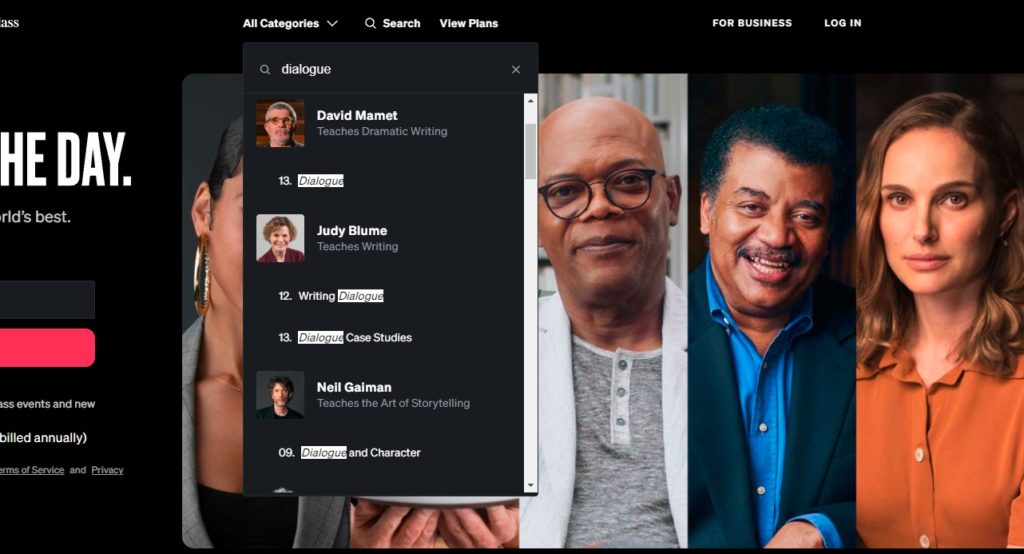
10. Boom pole (e.g. $266)
Boom poles are those telescopic poles that extend out, often to something like 7 or 10 ft and, in filmmaking, they are often used with the microphone attached to the end so that you can reach in closer to the actors and record their sound without your body being visible in the shot. The video below shows some of the basics of working with boom poles.
Boom poles can be expensive so a lot of low-budget filmmakers use DIY boom poles, such as those created using a light bulb changer pole, painters extension pole, or a telescopic bamboo fishing pole. In some cases they enjoy those DIY boom poles more than the commercial ones because, for example, the bamboo boom pole doesn’t get as cold to the touch in the winter as metal boom poles. You can find a lot of YouTube videos about how to make your own boom pole. However, remember that boom poles have expensive equipment at the end, so you want to make sure they don’t fall apart.
If you want to buy your filmmaker a boom pole, K-Tek is known to be a pretty good brand:
11. C-Stand (e.g. $148)
When you’re filmmaking, you need to have a bunch of stuff high up but in a sturdy way. Having a C-stand helps with that, as shown in the video below.
The C-stand below can extend to a maximum height of 11 ft, comes with a holding arm, and can be a great gift for a filmmaker. Just remember to use sandbags, as shown in the video.
12. Ask them and feel free to give ideas
Every filmmaker is different and can appreciate different things. Even if you get them an expensive piece of equipment, maybe they would have preferred it if you got them another piece of equipment that they need more urgently, or maybe they would’ve preferred to just get cash so that they can save up for an even more fancy piece of equipment later. Or maybe they need something that isn’t super directly related to filmmaking but still helps a lot, like an awesome computer chair.
To show that you put thought in to the gift, you can actually put thought into it and then share those thoughts in a conversation with the filmmaker. You can tell them what you were thinking of giving them and ask if that’s a good use of money or if there’s something they would prefer even more. You may find something unexpected, like maybe what they really want is music-creating software so they can learn to make their own music for films.
Also, you may have seen ads for a mug that looks like a camera lens, and while that may seem like a cool idea at first and a nice conversation starter, if you look closely at the reviews you’ll see that they often leak. Even if it doesn’t leak, the filmmaker you give it to might get disappointed because they might initially think, “Wow! A camera lens! Those are so expensive! Thank you so much!” And then they’ll realize it’s not a camera lens, and they’ll try to hide their disappointment. You can see people mentioning that kind of thing in Reddit filmmakers groups, and you’ll notice that in Amazon reviews, most of the time it’s the gift givers who give the great reviews rather than the gift receivers. However, yes, there are some people who might enjoy that kind of mug, especially if they know in advance that it’s a mug, such as if you . . . ask them.
Speaking of questions, if your filmmaker is also an actor, you might be interested in the article about questions that actors enjoy getting asked.

